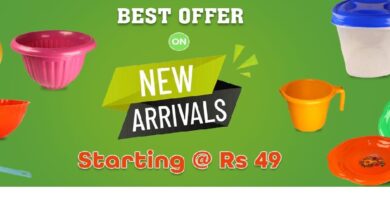SEO vs. PPC: Which Strategy is Best for Your Business?

When it comes to growing your business online, you’ve probably heard the terms “SEO” and “PPC” thrown around. But which strategy is right for your business?
Imagine you’re deciding between planting a tree or renting a vending machine. Planting a tree (SEO) takes time and patience, but once it grows, it provides shade and fruit for years.
Renting a vending machine (PPC), on the other hand, gives you immediate access to snacks but requires constant payments to keep it running. Both options have their merits, but which one fits your goals?
In this article, we’ll dive into the pros and cons of SEO and PPC, explain the key differences, and help you decide which strategy will work best for your business.
What is SEO?
SEO, or Search Engine Optimization, is like the foundation of a strong building. It’s about optimizing your website so that search engines (like Google) know exactly what you’re about and show your site to people looking for your services.
With SEO, you’re playing the long game. It’s not a sprint but a marathon, and the results can be incredibly rewarding. For example, a local bakery might start showing up in search results when people Google “best cupcakes near me,” leading to more foot traffic and online orders.
What is PPC?
PPC, or Pay-Per-Click advertising, is the shortcut to getting noticed. You pay to place your ad at the top of search results or social media feeds, targeting people ready to buy.
Think of it like hiring a billboard right on the busiest highway in town. As long as you’re paying for the space, everyone driving by sees your message. However, the second you stop paying, the billboard vanishes.
See also: Mass Texting: The Future of Instant Business Communication
Pros of SEO
Cost-Effective Over Time
SEO involves an upfront investment in content creation, keyword research, and optimization, but the traffic generated is free once your site ranks. Unlike PPC, there’s no ongoing cost per click.
Example: A small bakery investing in local SEO might rank for “best cupcakes near me,” driving steady customer traffic without paying for every visitor.
Application: Ideal for businesses with tight budgets looking for sustainable growth.
Builds Credibility and Trust
People tend to trust organic search results more than paid ads. Ranking on the first page signals to users that your business is reputable.
Example: A fitness coach with a blog that ranks high for “weight loss tips” builds authority, gaining clients who trust their expertise.
Application: Best for businesses aiming to establish a long-term brand reputation.
Long-Term Results
Once your site is optimized and ranks, it can bring in traffic consistently without further investment.
Example: An eCommerce store selling hiking gear that ranks for “best hiking backpacks” will enjoy consistent traffic over months or even years.
Application: Great for evergreen products or services that remain relevant over time.
Covers All Stages of the Buyer’s Journey
SEO content, like blogs and product pages, caters to users at different stages—whether they’re researching, comparing, or ready to buy.
Example: A tech company might rank for “best laptops 2025” (awareness stage) and “buy gaming laptop” (decision stage).
Application: Suited for industries with a lengthy decision-making process.
Enhances User Experience
SEO emphasizes fast load times, mobile optimization, and clear navigation, improving the overall user experience.
Example: A travel agency that optimizes its website will not only rank higher but also keep users engaged longer.
Application: Perfect for businesses wanting to create a positive impression online.
Cons of SEO
It Takes Time
SEO is a long-term strategy, often requiring 3-6 months or longer to see significant results.
Example: A startup targeting competitive keywords like “best project management software” may not rank for months.
Application: Less suitable for businesses needing immediate results.
Algorithm Changes
Search engines like Google frequently update their algorithms, which can affect your rankings.
Example: A site heavily relying on backlinks might drop in rankings after an algorithm prioritizing content quality is introduced.
Application: Businesses need to stay adaptable and keep up with SEO trends.
High Competition
Industries with high competition require more effort, resources, and time to rank.
Example: Competing with established brands for “luxury watches” might be daunting for a new business.
Application: Requires strategic planning and professional help from an SEO agency.
Pros of PPC
Immediate Results
Ads start showing as soon as your campaign goes live, delivering instant traffic.
Example: A restaurant launching a weekend deal can use PPC to target local diners searching for “pizza delivery near me.”
Application: Perfect for time-sensitive promotions or product launches.
Precise Targeting
PPC platforms let you define your audience by demographics, location, interests, and behavior.
Example: A baby clothing store can target parents aged 25-40 searching for “best baby onesies.”
Application: Ideal for businesses with a clearly defined target audience.
Measurable ROI
PPC offers detailed analytics on clicks, conversions, and ROI, helping you optimize campaigns.
Example: A software company can track how many trial sign-ups came from their ad for “free project management tool.”
Application: Useful for businesses that rely on data-driven decisions.
Flexibility and Control
You can adjust your campaign anytime—change keywords, budgets, or even stop it altogether.
Example: An online florist can pause ads after Valentine’s Day and resume them for Mother’s Day.
Application: Suitable for businesses that frequently change their offerings or promotions.
Great for Testing
PPC lets you experiment with different headlines, ad copy, and offers to find what resonates most.
Example: An online course provider can test “Learn Coding in 30 Days” vs. “Become a Python Pro Fast” to see which gets more clicks.
Application: Perfect for businesses refining their marketing message.
Cons of PPC
Costly Over Time
PPC campaigns require continuous funding, and competitive keywords can quickly become expensive.
Example: A law firm bidding on “personal injury lawyer” might pay $50 or more per click.
Application: Can strain budgets, especially for small businesses.
Short-Term Gains
Traffic stops as soon as you stop paying for ads, unlike SEO’s long-term benefits.
Example: A retailer advertising a summer sale will see traffic drop the moment the campaign ends.
Application: Best for businesses that can afford ongoing investment.
Ad Blindness
Many users consciously or subconsciously ignore ads, reducing their effectiveness.
Example: A study shows that 70-80% of users focus on organic results, skipping paid ads.
Application: May limit PPC’s appeal for businesses relying solely on ads.
Click Fraud
Competitors or bots might click on your ads maliciously, wasting your budget.
Example: A small business might lose significant funds due to fraudulent clicks on their ads for “affordable IT solutions.”
Application: Requires vigilance and fraud protection tools.
Conclusion
Both SEO and PPC have unique strengths and weaknesses. SEO provides lasting, cost-effective results, while PPC offers immediate visibility and precise targeting. Think of SEO as planting a garden that flourishes over time, and PPC as buying ready-to-eat fruit from the store.
For most businesses, a balanced approach works best. Use PPC for quick wins and SEO for sustainable growth. If you’re unsure where to start, consulting an SEO agency can help tailor a strategy that aligns with your goals.
FAQ about SEO vs. PPC
How do I decide between SEO and PPC?
If you need quick results, start with PPC. For long-term growth and sustainability, focus on SEO.
Can SEO and PPC work together?
Absolutely! Combining SEO and PPC gives you the benefits of immediate traffic and lasting organic growth.
Is PPC better for small businesses?
PPC can deliver fast results for small businesses, but costs need to be managed carefully to avoid overspending.
How long does SEO take to work?
SEO typically takes 3-6 months to show significant results, depending on competition and industry.
What’s the biggest advantage of SEO over PPC?
SEO offers lasting results and builds trust with users, while PPC only works as long as you pay for it.
Can I do SEO and PPC on my own?
It’s possible, but working with an SEO agency or PPC expert ensures better results and saves time.
How do I measure the success of SEO or PPC?
Use tools like Google Analytics to track traffic, conversions, and ROI for both strategies.
What’s a common mistake business make with SEO or PPC?
For SEO, it’s expecting overnight success. For PPC, it’s failing to optimize campaigns and wasting budget.





